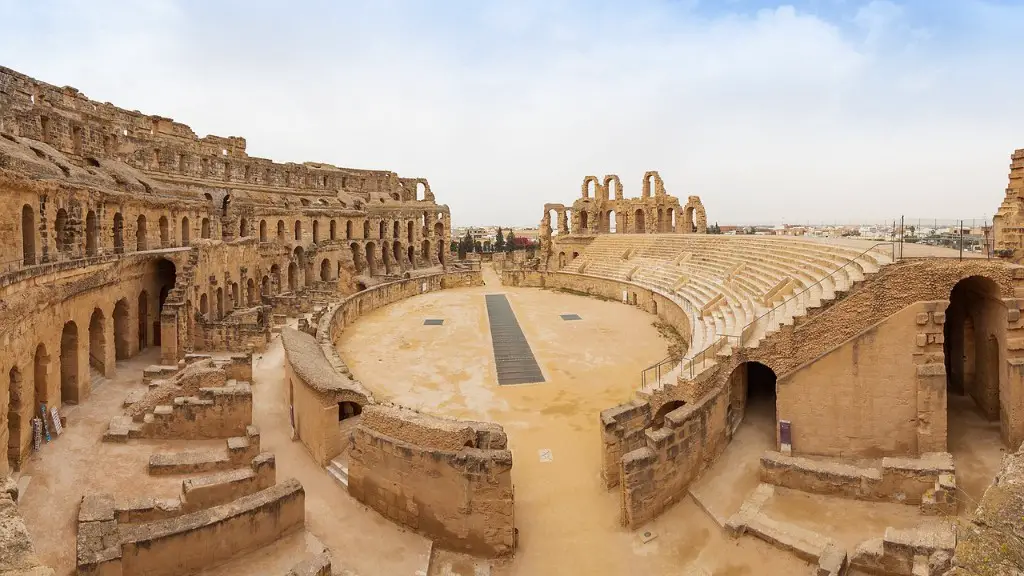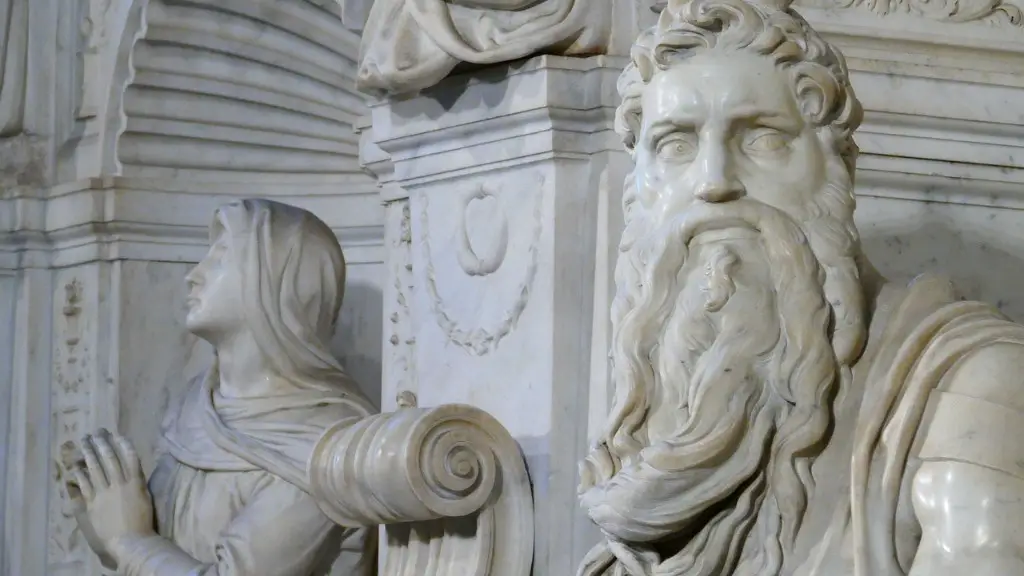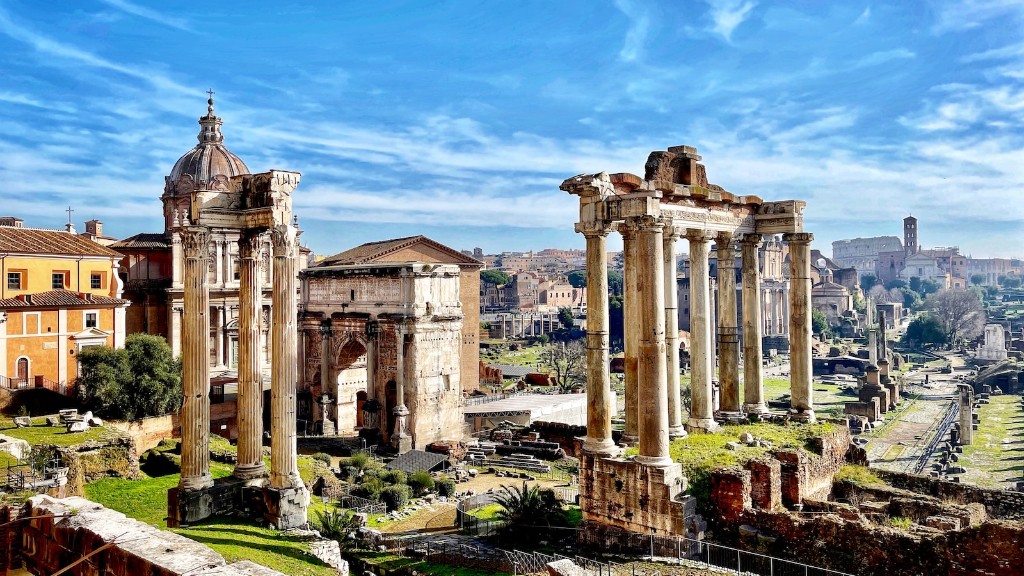The Senate of ancient Rome was one of the most important Roman institutions. Established in the 5th century BC, the Senate played an integral role in Roman government, serving as a legislative body and advisory board for the Roman executive branch. It was a cornerstone of Roman democracy, and its influence was felt throughout the ancient world.
The Senate was composed of aristocrats from Rome and other parts of Italy. They were selected from the most influential families in Rome and were expected to lead the city’s government by consensus. As the Republic and later Empire grew, the Senate’s authority and power increased with it. It became the highest legislative body in Rome and wielded immense influence over the Roman government.
The Senate had the power to ratify treaties and laws and approve or veto laws proposed by the popular assemblies. They also had the authority to elect or dismiss high-ranking officials such as consuls, praetors, magistrates, and other important positions. Furthermore, the Senate could advise the magistrates and even conduct investigations.
Due to the Senate’s prestige and power, it was difficult to gain membership. Those who were approved to become members of the Senate had to pass a test of approval. The approval process was designed to ensure that the Senate represented the highest values of Rome and its citizens. The Senate held great power and could even initiate constitutional reform if it deemed it necessary, making it a critical aspect of Roman government.
The Senate assisted in the administration of the Roman Empire and its territories. For example, during the Republic, the Senate would select ambassadors who would be sent to foreign countries. The Senate even had the power to declare war or call for peace and negotiate with foreign powers.
As time went on, the Senate declined in power and prominence and became dominated by the Emperor. The Senate was eventually stripped of its authority to elect and dismiss officials and some of its other powers. The Senate eventually ceased to exist when the Roman Empire fell in 476 AD.
The Ideology of the Senate
The Senate was rooted in the ideology of the Mos Maiorum, the fundamental values of Roman society. These values emphasized wisdom and prior experience, respect for tradition and social hierarchy, consensus and moral action. To achieve these values, the Senate held regular meetings in the Curia and passed laws and regulations in the same fashion. This was a symbol of continuity that ensured the Senate’s authority and its ability to control the Roman government.
The primary goal of the Senate was the preservation of the Roman state. This was done by maintaining stability and encouraging consensus. Since the Senate was composed of men of great wealth and power, it was thought that they would be able to keep the state in order. Additionally, since the Senate was a body of wise men, they would be able to use their experience and knowledge to steer the state in the correct direction.
Although the Senate represented the interests of the upper class, they also served to protect the interests of the Roman people. The Senate was also tasked with providing advice to the executive branch of government and moderating debates in the popular assemblies. In essence, the Senate aimed to achieve an equilibrium between the desires of the patricians and those of the plebeians.
The Senate also served as an important institution for justice. They were responsible for deciding cases involving the most important public affairs. They also had the authority to decide disputes between foreign nations, states, local towns and provinces, and individuals.
The Legacy of the Senate
Despite its decline in power and influence, the Senate of ancient Rome still serves as an example of government efficiency and fairness. The Senate was admired for its wisdom and its ability to maintain stability in the Roman Republic. Its legacy is still evident in modern Western democracies and other governments based on Roman law.
The Senate emphasized deliberation, moderation and consensus. This is exemplified by its use of the voting process and its willingness to provide advice and counsel. This type of decision-making is essential for creating a stable and effective government, something that many modern governments aspire to achieve.
The Senate of Rome was a product of the Republic and contributed to its success and stability. It was a vital component of the Roman government and was respected by the people of Rome. Its legacy has been carried on to this day and its example remains one of great importance to both historians and political scientists.
The Role of Patricians in the Senate
The Senate of ancient Rome was dominated by the aristocratic class or patricians. The patricians were born into upper-class households and were given positions in the Senate based on their wealth, lineage, and influence. As the Roman Republic expanded and flourished, so did the power of the patricians in the Senate.
In the Republic, the patricians held the upper hand due to their social and political power. They had the authority to select consuls and magistrates and suggest laws to the popular assemblies. This gave the patricians a tremendous degree of power, which was essential for the success of Rome.
The patricians were also able to exert influence on the public assemblies. This was done through their control of the financial resources of Rome, as well as their ability to gather support in the Senate. These actions allowed the patricians to shape the laws and regulations of Rome.
The patricians were able to maintain control over the Senate due to their wealth and influence. Even though the Republic eventually gave citizens more democratic rights, the patricians were still able to maintain their hold on the Senate. This was due to their domination of the highest military and political offices and their control of the purse strings of Rome.
The Role of Plebeians in the Senate
The plebeians were the majority of the population in the Roman Republic. This group of citizens was not allowed to run for office or vote, but they still had a role to play in the Senate. The plebeians were able to influence the Senate through the assembly of tribunes. These tribunes, elected by the plebeians, were seen as representatives of all whether rich or poor. These tribunes were empowered to protect the rights and interests of the plebeians and serve as checks on the power of the patricians.
The plebeians were also able to influence the Senate through the popular assemblies. The assemblies gave the plebeians a chance to express their concerns and grievances and try to sway the debates in the Senate. Although they did not have the same power as the patricians, the plebeians could still have a say in the Senate, something that was unheard of in any other ancient government.
The plebeians were also able to gain representation in the Senate through their own elected representatives. The plebeians elected tribunes and other magistrates who could discuss their concerns and speak on their behalf in the Senate. This gave the plebeians some form of voice in the Senate and allowed them to hold the patricians accountable.
The plebeians were an integral part of the Senate and were able to influence the governing body even though they did not hold the same power as the patricians. They were able to use their influence to promote the welfare of the Roman Republic and protect their own interests.
The Relationship Between the Senate and Magistrates
The Senate was the highest legislative body in Rome and the magistrates were the executive officers of the state. The Senate was in charge of selecting magistrates and passing laws, while the magistrates were responsible for executing these laws. Although the two bodies had distinct roles, they were closely intertwined in the governing of the Roman Republic.
The Senate was able to exert control over the magistrates by selecting and dismissing them as they saw fit. This was necessary to ensure the magistrates adhered to the laws and acted in the best interests of Rome. Furthermore, the magistrates were expected to consult with the Senate before making any major decisions and seek their approval before taking any action. The magistrates would also report to the Senate on their activities.
The Senate was able to use its influence to override any decisions made by the magistrates. This gave the Senate control of matters of state and allowed them to act in the best interests of the Republic. This relationship played a key role in the effectiveness of the Roman government.
The Senate also played an important role in the justice system. They had the authority to try cases of treason, assault, and murder and could hand down punishments as they saw fit. This ensured that justice was served in the Republic and that there were proper checks and balances in place.
The relationship between the Senate and magistrates was vital for the success of the Roman Republic. This relationship allowed the Senate to control the magistrates and ensured that the Republic was governed with fairness, justice, and efficiency.





